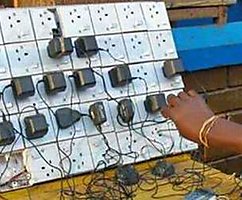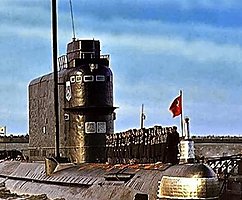Divorce: Remember, children become hostages of this war!
 Bashny.Net
Bashny.Net
So it turns out due to their professional duties, very often I have to see children going through difficult divorce of their parents.
As part of the judicial expert activity is not possible to provide them with psychological support, it is necessary only to ascertain their psycho-emotional state and make recommendations to the parents. The saddest thing is that the parents are in the midst of grandiose military action not to overlook the suffering of children, and often do not even have the idea that a child may suffer from a divorce. Often I hear the words of mothers and fathers who are "fighting" for the right to raise the child that everything that I have written or said as recommendations - complete nonsense, it is often the parents refer to their experience of life and give reason for their indifference to the feelings of the child with the words " I myself or grew up without a father or mother, and that's okay, "or" my parents also got divorced, I do not remember that I have suffered. »

In the debate with them, I do not come, do not see the point, and in front of me there are other problems. And while going litigation over the fate of the child, this same child sometimes just emotionally close to a coma. You should know and remember that children, even very young age, whether we like it or not, we see it or not, become parties to this war and hostages called
«divorce». Like the law of war they are taken captive, hostage exchange traded and receive benefits for them. It's horrible! And all for what? In order to be then one of the parents proudly raised the flag, which acts as a child, walked on his personal and very questionable victory parade.
But often, even after the "victory" won, the child ceases to be a bargaining chip, about his feelings, few people think, the consequences of ignoring then poured sometimes in horror stories, which affects not only those who have been a direct participant in the battle, but any innocent people. And there is a substantial risk that the child is going to suffer from psychological wounds received lifetime.
The reactions of children to parental divorce is always destructive. The decisive response of the child in the divorce is his age. Of course, that great importance is the level of conflict divorce. In addition, the position of divorcing adult relative may also be determining the child. Do your parents take care of the correct perception of the child of the situation, whether it is prepared to change, if the child is used as a tool for mutual manipulation. From these and many other factors will determine how the child will survive the divorce of their parents.
And parents who break up, and psychologists, which then in the process of disintegration of the family, may be treated parents, what reaction should be to know and understand you would expect from a child. For each age reaction to the divorce has its own peculiarities, specifics.

If divorce is the basis of the conflict and is accompanied by anxiety and depression in a parent figure who is caring for the child, then the child in infancy may be the reaction in the form of deterioration of appetite, somatic symptoms, anxiety. Such reactions may be a response to the regime and change the date, moving, changing other caregivers. It is now one of the parents to have to adapt to life in a different environment, which leads to changes in the normal rhythm of life. While depression can be lost in the mother's milk and this will lead to a change in the child's diet. These and other factors will inevitably have a negative impact on the child.
Children under three years are generally not aware of the reason for a separate residence of any of the parents. They still do not have a sufficient level of development and can not be consciously evaluate and analyze the developments and changes taking place around them. However, in a divorce situation for them becomes a typical behavior of a regressive nature, moods and growing manifestation of addictive behavior is often reinforced a tendency to tears. When vysokokonfliktnom divorce children under 3 years of age may regress in speech development, to respond to the situation of night and day incontinence. Moreover, in this age, children may respond to the situation of unwarranted aggression, desire for solitude, fenced off. It is believed that young children experiencing parental separation step is most easily. Delayed effects of divorce in children of this age on the observations of psychologists, are usually minimal.
Preschool children usually do not fully understand what divorce is, however, aware that one of the parents for some reason ceases to be available as needed, reduced the level of participation in family life and in his life. Reactions to divorce at this age are usually manifested in the emergence of anxiety, confusion, feelings of loneliness, in rare cases associated with a sense of grief and loss. The most frequent and typical for preschoolers is the appearance of guilt for parental conflicts. The child begins to think that he was the cause of his parents' divorce, he did not behave very well, I was a bad kid and this was the reason for the separation of parents.
This aged children tend to fantasize about the possibility that the parents reconciled and reunited, it is a kind of protective, protective function of the psyche. As well as children up to 3 years, preschoolers characterized by regression in behavior often appears seemingly unmotivated aggression to the parent with whom he lives, there is emotional lability.
Younger students already know what a divorce, are aware that parental figures will no longer live together because of lack of love and friendship to each other. The elimination of the family as a way of being clearly perceived as a loss of a safe environment. Unfortunately, a child of this age are not yet fully decorated defense mechanisms, coping strategies and this immaturity does not allow the child to effectively and with minimal trauma to experience the divorce situation the parents.
In the early school period, children who find themselves in a situation of separation of parents, there is a very strong sense of loss, loneliness, helplessness, resentment against a parent who left, a deep melancholy. Such a condition is not uncommon helps the parent with whom the child was living, if responds negatively about the other parent, the child sets up against. Children try to understand the reasons of separation of adults believe in their reunion. Due to the fact that the loss of any of the parents makes it possible for the child and the loss of the other, reinforced fears and dependence. Qualitatively reduced level of social adjustment, school performance suffers usefulness of communication with their peers. More often than in younger children at younger preschoolers manifest neurotic symptoms requiring a doctor's participation.
Children 9 - 12 years old are already quite mature mentality, characterized by maximalism, his own conception of good and evil, positive and negative, have exacerbated evaluation of the fairness, truthfulness, fidelity. However, the presentation of children's life and its structure is quite rigidity. Compared with younger children, children in the period of 9 - 12 years old prefer not to deal with his aggression against parents, they express it freely, openly, defiantly. What's rarely results in a tough confrontation with one or both parents. Very often, when parting the parents the child prefers to create an alliance with one of the parents, and, as they say, friendship against the other.
As can be understood from the above review of the children's reactions to the divorce of parents, a child of any age subject to the suffering of his parents' divorce. We should not forget that this war will be judged, and all the "winner" and "loser", and the judge will be grown up child.
Sometimes, divorce - it is inevitable, but there is always an opportunity to minimize its negative consequences for the child. It is necessary to inform the parents are in the stage of separation of trauma prevention methods that can be applied to the child.
Author: Dmitry Kudzilov
As part of the judicial expert activity is not possible to provide them with psychological support, it is necessary only to ascertain their psycho-emotional state and make recommendations to the parents. The saddest thing is that the parents are in the midst of grandiose military action not to overlook the suffering of children, and often do not even have the idea that a child may suffer from a divorce. Often I hear the words of mothers and fathers who are "fighting" for the right to raise the child that everything that I have written or said as recommendations - complete nonsense, it is often the parents refer to their experience of life and give reason for their indifference to the feelings of the child with the words " I myself or grew up without a father or mother, and that's okay, "or" my parents also got divorced, I do not remember that I have suffered. »

In the debate with them, I do not come, do not see the point, and in front of me there are other problems. And while going litigation over the fate of the child, this same child sometimes just emotionally close to a coma. You should know and remember that children, even very young age, whether we like it or not, we see it or not, become parties to this war and hostages called
«divorce». Like the law of war they are taken captive, hostage exchange traded and receive benefits for them. It's horrible! And all for what? In order to be then one of the parents proudly raised the flag, which acts as a child, walked on his personal and very questionable victory parade.
But often, even after the "victory" won, the child ceases to be a bargaining chip, about his feelings, few people think, the consequences of ignoring then poured sometimes in horror stories, which affects not only those who have been a direct participant in the battle, but any innocent people. And there is a substantial risk that the child is going to suffer from psychological wounds received lifetime.
The reactions of children to parental divorce is always destructive. The decisive response of the child in the divorce is his age. Of course, that great importance is the level of conflict divorce. In addition, the position of divorcing adult relative may also be determining the child. Do your parents take care of the correct perception of the child of the situation, whether it is prepared to change, if the child is used as a tool for mutual manipulation. From these and many other factors will determine how the child will survive the divorce of their parents.
And parents who break up, and psychologists, which then in the process of disintegration of the family, may be treated parents, what reaction should be to know and understand you would expect from a child. For each age reaction to the divorce has its own peculiarities, specifics.

If divorce is the basis of the conflict and is accompanied by anxiety and depression in a parent figure who is caring for the child, then the child in infancy may be the reaction in the form of deterioration of appetite, somatic symptoms, anxiety. Such reactions may be a response to the regime and change the date, moving, changing other caregivers. It is now one of the parents to have to adapt to life in a different environment, which leads to changes in the normal rhythm of life. While depression can be lost in the mother's milk and this will lead to a change in the child's diet. These and other factors will inevitably have a negative impact on the child.
Children under three years are generally not aware of the reason for a separate residence of any of the parents. They still do not have a sufficient level of development and can not be consciously evaluate and analyze the developments and changes taking place around them. However, in a divorce situation for them becomes a typical behavior of a regressive nature, moods and growing manifestation of addictive behavior is often reinforced a tendency to tears. When vysokokonfliktnom divorce children under 3 years of age may regress in speech development, to respond to the situation of night and day incontinence. Moreover, in this age, children may respond to the situation of unwarranted aggression, desire for solitude, fenced off. It is believed that young children experiencing parental separation step is most easily. Delayed effects of divorce in children of this age on the observations of psychologists, are usually minimal.
Preschool children usually do not fully understand what divorce is, however, aware that one of the parents for some reason ceases to be available as needed, reduced the level of participation in family life and in his life. Reactions to divorce at this age are usually manifested in the emergence of anxiety, confusion, feelings of loneliness, in rare cases associated with a sense of grief and loss. The most frequent and typical for preschoolers is the appearance of guilt for parental conflicts. The child begins to think that he was the cause of his parents' divorce, he did not behave very well, I was a bad kid and this was the reason for the separation of parents.
This aged children tend to fantasize about the possibility that the parents reconciled and reunited, it is a kind of protective, protective function of the psyche. As well as children up to 3 years, preschoolers characterized by regression in behavior often appears seemingly unmotivated aggression to the parent with whom he lives, there is emotional lability.
Younger students already know what a divorce, are aware that parental figures will no longer live together because of lack of love and friendship to each other. The elimination of the family as a way of being clearly perceived as a loss of a safe environment. Unfortunately, a child of this age are not yet fully decorated defense mechanisms, coping strategies and this immaturity does not allow the child to effectively and with minimal trauma to experience the divorce situation the parents.
In the early school period, children who find themselves in a situation of separation of parents, there is a very strong sense of loss, loneliness, helplessness, resentment against a parent who left, a deep melancholy. Such a condition is not uncommon helps the parent with whom the child was living, if responds negatively about the other parent, the child sets up against. Children try to understand the reasons of separation of adults believe in their reunion. Due to the fact that the loss of any of the parents makes it possible for the child and the loss of the other, reinforced fears and dependence. Qualitatively reduced level of social adjustment, school performance suffers usefulness of communication with their peers. More often than in younger children at younger preschoolers manifest neurotic symptoms requiring a doctor's participation.
Children 9 - 12 years old are already quite mature mentality, characterized by maximalism, his own conception of good and evil, positive and negative, have exacerbated evaluation of the fairness, truthfulness, fidelity. However, the presentation of children's life and its structure is quite rigidity. Compared with younger children, children in the period of 9 - 12 years old prefer not to deal with his aggression against parents, they express it freely, openly, defiantly. What's rarely results in a tough confrontation with one or both parents. Very often, when parting the parents the child prefers to create an alliance with one of the parents, and, as they say, friendship against the other.
As can be understood from the above review of the children's reactions to the divorce of parents, a child of any age subject to the suffering of his parents' divorce. We should not forget that this war will be judged, and all the "winner" and "loser", and the judge will be grown up child.
Sometimes, divorce - it is inevitable, but there is always an opportunity to minimize its negative consequences for the child. It is necessary to inform the parents are in the stage of separation of trauma prevention methods that can be applied to the child.
Author: Dmitry Kudzilov
Tags
Personal development
psychology
women
men
relationships
life
happiness
harmony
love
children
money
wealth
success
See also
On the practice and self-development:
Michael Khas'minskii: Families split about selfishness
As thoughts turn into disease
12 myths of official oncology
Sergey Saveliev: Humanity grows dull - the brain decreases
Irritation and 5 stages of the degradation of the family
Family. Husband mocks, demeans, destroys morale.
12 tricks that teach women's magazines
The woman - the basis of family well-being
Signs of fate.

















